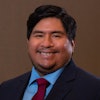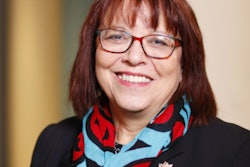Sharing A Common Interest
Growing weary of the lack of diversity in philosophy courses, Rutgers professor finds way to generate interest in the discipline among minority students
By Michelle Nealy
The philosopher’s job is to provide humanity with practical solutions to reality’s intrinsic problems. So when Dr. Howard McGary, a philosophy professor at Rutgers, The State University of New Jersey, grew weary of the lack of female and minority students in his classes and his field, he initiated an effort that would inject a healthy dose of diversity into philosophy classrooms and curricula.
In 1996 McGary, a 31-year veteran of academic philosophy, launched the Rutgers Summer Institute for Diversity in Philosophy program. The program brings together students from universities across the country for an all-expense paid week of programs, lectures and social activities. This year’s pool of 15 students was selected from 43 applicants. The students interacted with some of the leading academic philosophers in the field, including Dr. Jorge Garcia, former chair of the American Philosophical Association’s Committee on Blacks in Philosophy and author of The Heart of Racism: Essays on Diversity, Race, and Relativism, and Rutgers professor Dr. Douglas Husak, a leading scholar in criminal law philosophy.
According to the Doctorate Recipients from U.S. Universities 2003 Summary Report, of the 391 academics who received doctorates in philosophy 13 were Hispanic, eight were Asian and three were African-American. There were no American Indian recipients.
Many students from historically under-represented groups overlook philosophy as a career or academic major because they do not view it as a lucrative profession.
“People of color usually come from a background where they have to be concerned with earning a living. They don’t see how a Ph.D. in philosophy could result in a viable source of income,” says McGary.
Adam Simon, a junior philosophy major at Illinois Wesleyan University, who plans to pursue a career in philosophy, says, “People of color do not want to be philosophers, because families do not see philosophy as a practical profession. The pay is oftentimes lower for professors that teach philosophy, and the job market is smaller. My parents do not think that it will be wise for me to study philosophy in graduate school.” Simon was one of the students who attended this year’s camp, which ran from July 31-Aug. 7.
The lack of role models in the discipline is another reason minority students do not flock to philosophy departments in droves. “Philosophy is the Whitest profession of almost any profession, and people of color see it as esoteric,” Simon says.




















